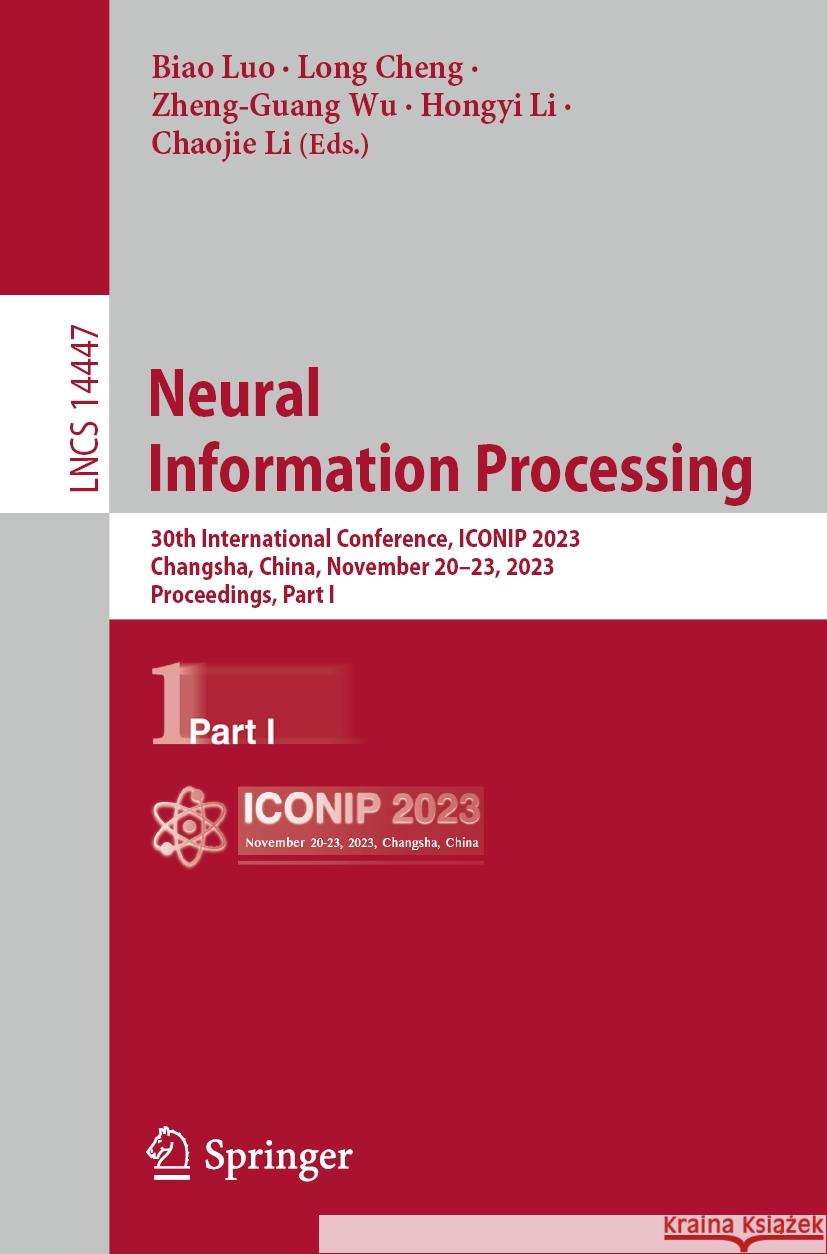Neural Information Processing » książka
topmenu
Neural Information Processing
ISBN-13: 9789819980789 / Angielski / Miękka / 2023
Neural Information Processing
ISBN-13: 9789819980789 / Angielski / Miękka / 2023
cena 316,12 zł
(netto: 301,07 VAT: 5%)
Najniższa cena z 30 dni: 313,93 zł
(netto: 301,07 VAT: 5%)
Najniższa cena z 30 dni: 313,93 zł
Termin realizacji zamówienia:
ok. 20 dni roboczych.
ok. 20 dni roboczych.
Darmowa dostawa!
The six-volume set LNCS 14447 until 14452 constitutes the refereed proceedings of the 30th International Conference on Neural Information Processing, ICONIP 2023, held in Changsha, China, in November 2023.
The 652 papers presented in the proceedings set were carefully reviewed and selected from 1274 submissions. They focus on theory and algorithms, cognitive neurosciences; human centred computing; applications in neuroscience, neural networks, deep learning, and related fields.











